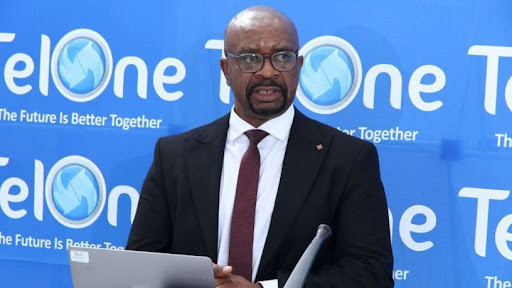
PROCRASTINATION is the thief of time, English poet and dramatist Edward Young once said.
For TelOne, the delay by government to resolve the legacy debt issue has seen the firm missing out on the boom in the capital-intensive telecommunications sector.
The parastatal last week said it was hamstrung by a debt it inherited on the unbundling of the then Postal and Telecommunications Corporation (PTC) more than 20 years ago.
The legacy debt, now US$389 million, was transferred to the telecom firm following the unbundling of PTC into NetOne, Zimpost and TelOne.
TelOne chief executive officer Lawrence Nkala last week told journalists on the sidelines of the company’s annual general meeting that the legacy debt has derailed its operations.
“The legacy loan book has remained an encumbrance to TelOne’s balance sheet, resulting in the company operating in a net liability position of ZiG32,2 million as of December 31, 2024 and this has hindered TelOne’s efforts to attract fresh capital required for network modernisation and digitalisation projects,” Nkala said.
Government must take over the legacy debt expeditiously to allow TelOne to operate on a clean slate.
It cannot compete with other players in the sector as that legacy debt remains an albatross around its neck.
- Econet tariffs shoot up
- TelOne picks EOS Data for agric platform
- Vandalism disrupts TelOne network
- Gweru debtors’ bill soars to $3bn
Keep Reading
Why should TelOne suffer for PTC’s sins? That TelOne was made to inherit the debt was wrong in the first place and the authorities were supposed to rectify that anomaly.
They failed.
In 2019, Cabinet approved the takeover of that debt. Five years later, the legacy debt remains on TelOne’s books.
At TelOne’s 8th annual general meeting in 2022, an ICT ministry official said the parent ministry had submitted all required documents for the warehousing of the debt three years earlier.
That the status quo remains after revelations by an official from the ICT ministry shows government’s half-hearted approach to resolving the crisis.
Treasury must explain why the legacy debt has not been warehoused by now to give TelOne breathing space.
A Cabinet resolution must be implemented to the letter.
Government cannot expect TelOne to do wonders if it does not play its part.
It is not only the legacy debt that TelOne has to contend with. It is owed US$19,2 million by the government, with Treasury citing funding challenges.
While other service providers enjoy the luxury of pausing business with government, it is a different ball game for TelOne.
Yet the company has statutory obligations, such as taxes, that must be dispensed with, notwithstanding its failure to collect money for services rendered.
“This has caused serious liquidity constraints within the business and we are hamstrung in our operations because we do not have adequate capital, working capital for our operations and also to be able to pay our staff for them to deliver their output in terms of work,” Nkala said last week. The government must walk the talk and resolve the legacy debt issue.
The longer the process to take over the debt takes, the longer it will take for TelOne to mount a serious fightback against competition.






